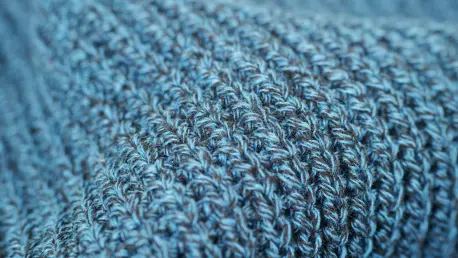In a groundbreaking collaboration, Deakin University’s Institute for Frontier Materials (IFM) has partnered with fashion brand Country Road and textile manufacturer Loomtex to breathe new life into Australia’s textile industry. This innovative project, dubbed “Mud to Marle,” seeks to transform low-grade Merino wool, specifically short fibers known as locks, into high-value yarn suitable for fashion garments. By leveraging a domestic production process that highlights sustainability, this initiative aims to revitalize onshore garment production using Australian wool. Despite Australia’s global reputation for producing premium wool, the nation historically lacked the commercial infrastructure needed to process large quantities of raw fibers effectively. The effort, supported by funding from the Country Road Climate Fund, aligns seamlessly with IFM’s commitment to sustainability. A crucial element of this endeavor is the emphasis on reduced resource consumption, particularly through the selective dyeing of wool fibers within a wool-cotton blend to optimize water and energy usage.
Transforming Low-grade Wool into Fashion Gold
A key component of this transformative project sources Merino locks from South Australia, merging them with Queensland cotton to create a finer yarn than typically achievable with such fibers. This fusion of materials not only demonstrates the feasibility of producing high-quality yarn from lower-grade wool but also showcases a unique approach to fabric development that could set new standards in sustainable fashion. The initiative exemplifies the potential for innovative methods to bridge the gap between Australia’s raw material abundance and its limited capability for large-scale textile processing. The blending technique employed in “Mud to Marle” is a testament to the collaborative effort between academia and industry, breaking traditional boundaries and setting a precedent for similar future projects.
The project’s initial success has already sparked considerable interest, leading to a significant $300,000 industry partnership aimed at advancing Deakin’s research into wool-cotton products. This partnership signifies a renewed focus on exploring the untapped potential of Australian wool in combination with other natural fibers. By fostering such collaborative research efforts, the project not only paves the way for advancements in textile technology but also highlights the growing investment opportunities stemming from a restored interest in Australia’s textile manufacturing sector. The “Mud to Marle” initiative can inspire other industry stakeholders to consider similar ventures, potentially spurring a broader resurgence of onshore textile manufacturing.
Catalyzing a New Era in Textile Production
Prototype garments, including T-shirts and pants, have already been developed as part of the project, exemplifying the versatility and fashionability of the new wool-cotton blend. These prototypes serve as tangible proof of concept that sustainable, high-quality garments can be produced domestically using innovative materials and processes. The development of these garments not only underscores the technical feasibility but also attests to the growing consumer demand for environmentally-conscious fashion choices. Circular textile production, as promoted by this project, reflects a shift towards more sustainable industry practices, emerging as a promising trend in the global fashion landscape.
The burgeoning demand for sustainable textiles has created an opportune moment for investment and innovation in Australia’s textile sector. “Mud to Marle” highlights the potential for industry pioneers to tap into this opportunity, leveraging the project’s momentum to drive significant advancements in sustainable textile manufacturing. As more brands and manufacturers recognize the benefits of local production coupled with sustainable practices, the industry could witness a significant shift towards circular production models. Such a shift could herald a rejuvenation of Australia’s textile sector, marking the beginning of a new chapter characterized by innovation, sustainability, and economic growth.
Setting the Stage for Continued Growth and Innovation
Deakin University’s Institute for Frontier Materials (IFM) has teamed up with the fashion brand Country Road and textile producer Loomtex to rejuvenate Australia’s textile sector with a pioneering initiative called “Mud to Marle.” The goal is to convert low-grade Merino wool, specifically the short fibers known as locks, into high-value yarn for fashion apparel. This project emphasizes sustainability by utilizing a domestic production process to boost onshore garment creation using Australian wool. Despite Australia’s internationally acclaimed premium wool, the nation historically lacked the necessary commercial infrastructure to efficiently process substantial amounts of raw fibers. Supported by the Country Road Climate Fund, this initiative aligns perfectly with IFM’s dedication to sustainability. Focused on cutting resource use, it features selective dyeing of wool fibers within a wool-cotton mix, aiming to optimize water and energy consumption. This effort positions Australia’s textile industry for a potential renaissance.









